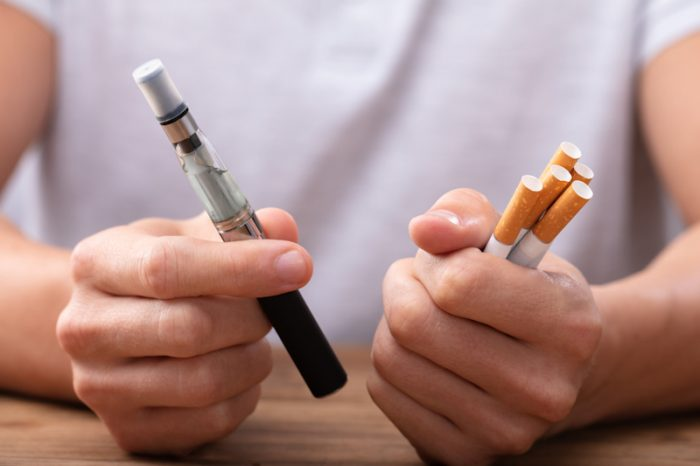
The UK Government has released its most comprehensive review of vaping and vape products to date, and states that smokers who switch will experience substantial health gains. The work began with Public Health England declaring that vaping was “95% safer” than smoking in 2015. This final report produced for the Office for Health Improvement and Disparities finds that switching offers substantial health gains.
Dr Lion Shahab, Director of the Tobacco and Alcohol Research Group at University College London, said: “The study confirms findings from previous reviews in this area that nicotine vaping is far less harmful than smoking tobacco.”
The team, led by King’s College London’s Professor Ann McNeill, looked at four hundred published studies to see what the evidence says about electronic cigarettes, vaping, and how vapes can reduce tobacco related harm.
“The report acknowledges that vaping carries some risks compared with not using any product at all,” continued Dr Shahab, “but these concerns are often overstated, resulting in false risk perceptions that may dissuade those using the riskiest product (cigarettes) from switching to lower risk products (e-cigarettes).”
The Government currently holds an ambition to achieve a Smokefree 2030 England, other regions of the United Kingdom are responsible for setting their own targets. The authors say their findings provide an opportunity to review all vape related regulations as part of its forthcoming tobacco control plan – and urge the Government to take on board the findings of substantial health dividends.
The report’s authors are concerned about the “continuing lack of a medicinally licensed vaping product”. The call for a review of the application process as they deem it important that GPs have the ability to prescribe e-cig kits to smoking patients who have not yet made the switch. Also, they believe that having a prescribable kit will aid understanding and appreciation within the medical community.
“There needs to be consideration of whether some aspects of packaging of vaping products need restricting,” they continue, due to fears over an increase in non-smoking teens who have taken up vaping.
This should be done, “to discourage them from starting to vape, in addition to better reinforcement of age of sale and advertising restrictions,” continued Dr Shahab.
The team take the opportunity to point out that continued underfunding of local authorities has led to a situation where trading standards officers are struggling to keep up with the influx of non-compliant products – especially disposable vapes.
“There is a danger that the reduction in local trading standards officers and restructure of the MHRA could result in a lack of surveillance of these products. This could undermine the approach and regulatory framework for vaping products adopted in England,” they say.
Lead author Professor Ann McNeill sums up the key message of the report: “Vaping poses only a small fraction of the risks of smoking in the short to medium term, however, this does not mean vaping is risk-free, particularly for people who have never smoked.”
